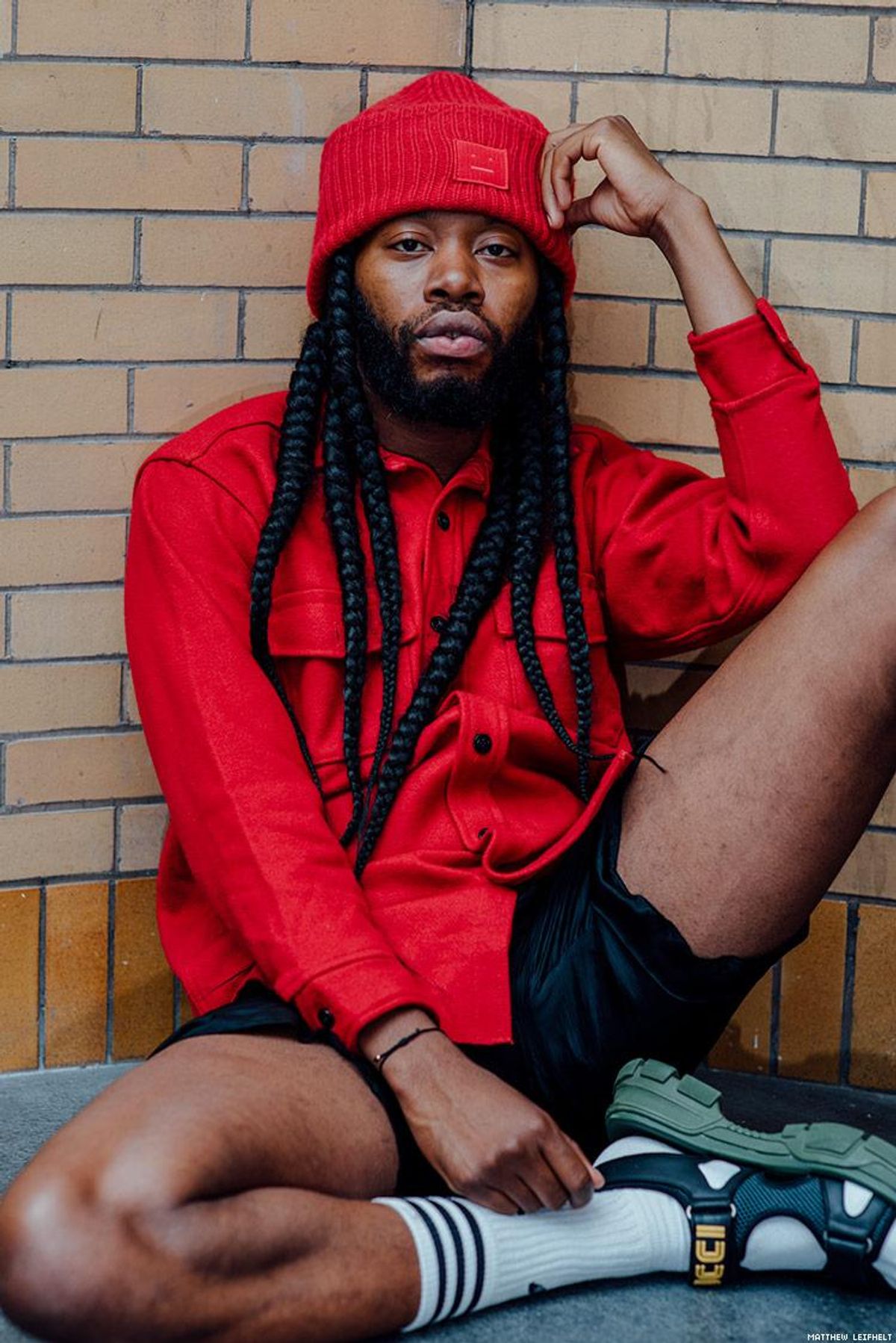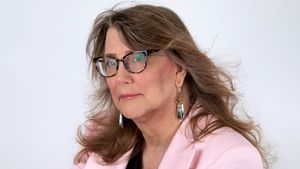In August 2014, Jeremy O. Harris had a turning point. "It was sort of my Scarlett O'Hara moment," says the playwright and actor, recalling the night when he received a standing ovation for a play he wrote as a finalist in the Samuel French Off-Off Broadway Short Play Festival. The 30-minute production, which included music Harris composed with his friend Isabella Summers (from Florence and the Machine), did not win the top prize, but it did get people on their feet like no other work of the evening. "I had that 'As God is my witness...I'll never go hungry again,' moment," Harris says, "where I was, like, 'I refuse! This is bullshit! None of these other plays got a standing ovation tonight, and I did. I did it!'" That fiercely determined attitude -- along with encouragement from his mentor, playwright and Pulitzer Prize finalist Christopher Shinn -- set Harris on a four-year path toward his next projects: two Off-Broadway productions, beginning this month with Slave Play.
"I'm from Martinsville, Virginia," Harris says, "and what I've always wanted for myself is to be able to write a play that will end up in the same Barnes & Noble as the first play I encountered [back home]." (Over lunch at Yale, where he's in his final year at the School of Drama, Harris says that first play was A Midsummer Night's Dream, which he stumbled upon in fifth grade, when he was 11.) "I want that because when I think about the playwrights who have written plays that have reached that kid -- playwrights who identify as black and gay -- they are limited. I know offhand the four who got to me: Branden Jacobs-Jenkins, Robert O'Hara, Tarell Alvin McCraney, and Marcus Gardley."

Harris, who in 2009 dropped out of the Theatre School at DePaul University in Chicago, is set on both standing out and adding his name to the ranks, not only of those writers who have inspired him but also of a lineage of black playwrights. He was named a 2016 MacDowell Colony fellow and was the recipient of the 2018-2019 Vineyard Theatre Paula Vogel Playwriting Award. Slave Play, which covers race and sexuality and is billed as an "antebellum fever dream," has earned the 2018 Kennedy Center Rosa Parks Playwriting Award and the Lorraine Hansberry Playwriting Award. And all of this recognition is for art that sees Harris putting his identity and heritage at the forefront.
"My identity markers, which would have made this work less palatable 20 years ago -- or even 10 years ago -- might now be part of the reason why my work is more impactful," Harris says. Indeed, Slave Play, which will be directed by Robert O'Hara and debut Nov. 19 at New York Theatre Workshop, and Daddy, which opens next February and stars Alan Cumming, include a queer sexuality that wasn't always accepted in the work of his theatrical heroes. "In this landscape of white, cis, straightness, there's a curiosity about this black queer boy working in this paradigm," Harris says, "which is both interesting and scary because it feels like a trend. Like, what happens when they get bored?" If and when they do, Harris intends to have already done as much as he can to ask questions and poke and prod at topics surrounding race, gender, sexuality, and the interactions therein.
"Slave Play," he says, somewhat cryptically, "moves best if no one knows what will happen." He likens this tactic to the enticing effect that "18 or over" screens had on him when he perused adult websites in his youth. "The way I describe Slave Play to people is, 'It's a slave play; there's a history of them; go see mine.'" And while the play drops a few recognizable contemporary names -- such as Rihanna, whose inclusion reflects how music is another hallmark of Harris's work -- its creator isn't exactly keen on making things that pander to the mainstream.
"I don't think about palatability as much as other people seem to," he says. "For me, it's akin to respectability politics, and I think there's very little necessity for respectability politics, especially in a time that's so deeply unrespectable. When I think about race and sexuality in America, palatability is the furthest thing from my concerns. I made a play that's palatable to me but might not be palatable to my audience. I'll see how they reckon with that."
Harris's work is built on the back of a history that's often left out of the traditional theater narrative. He cites the chitlin circuit and storied productions by black artists as additional influences. For Slave Play, in particular, he points to the work of Alice Childress and Thomas Bradshaw as much as he does to that of Annie Baker and Rainer Werner Fassbinder. And while imbuing his art with this heritage, he poses even more questions.
"I'm continuously asking people, Why is it that Alice Childress is not getting a remounting on Broadway?" he says. "Why is it that we've only had, like, one Adrienne Kennedy remount in the past five years, but in New York, we've had three by Edward Albee? Why is it that the works of so many experimental and genre-bending black artists don't get taught in our schools? For me, part of being a young writer is talking about your references -- consistently."
He hopes to bring that conversation to the stage, from Slave Play to Daddy and beyond. His next production is one he'll work on through his new award from Vineyard Theatre, and he describes it as The Colored Museum on crack -- a reference to black gay playwright George C. Wolfe's 1986 satire that examined African-American culture. In addition, last year Harris finished his first screenplay, which is based on the viral Twitter story about a character named Zola, and involves strippers, pimps, forced prostitution, and human trafficking. It was co-written, and will be directed, by Janicza Bravo, who has helmed episodes of shows like Atlanta and Dear White People. He's also working on an original screenplay with producer Bruce Cohen (Milk, Silver Linings Playbook) and Makeready.
"The fact that I took so many wrong turns and have ended up here means that everything was sort of right," Harris says. "If I can utilize the wrong turns I made, and bring along all the people I met along the way into my journey of being a playwright, and introduce them and their friends to people that I think are making the best theater right now, then theater might actually become a medium that people care about again."
Photography by Matthew Leifhelt





















































































